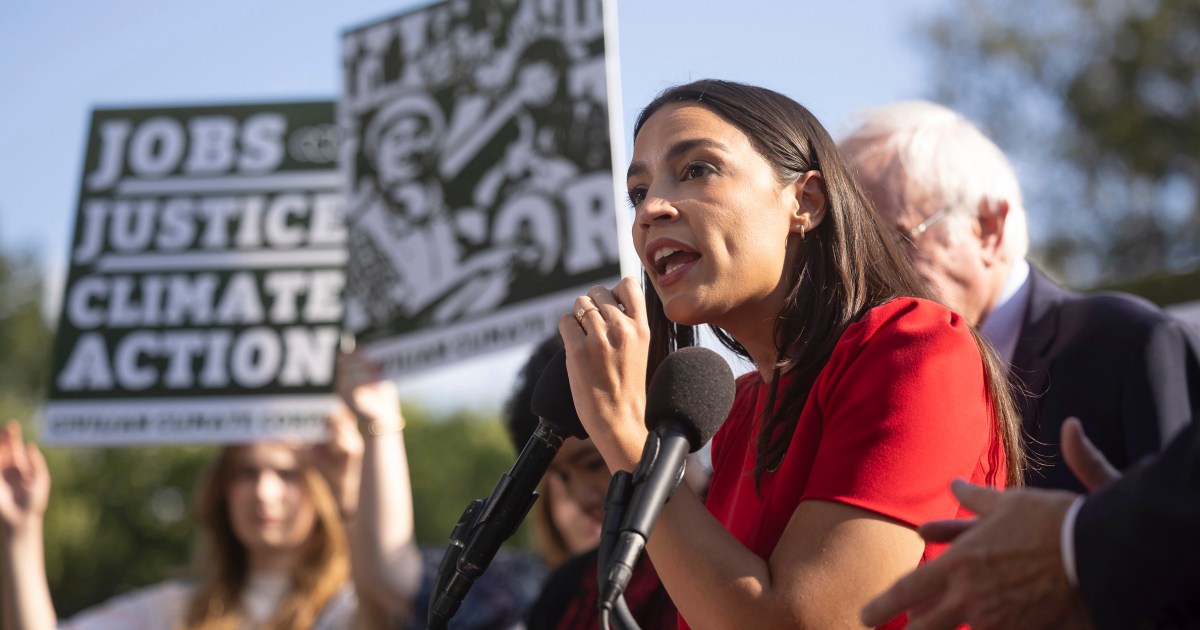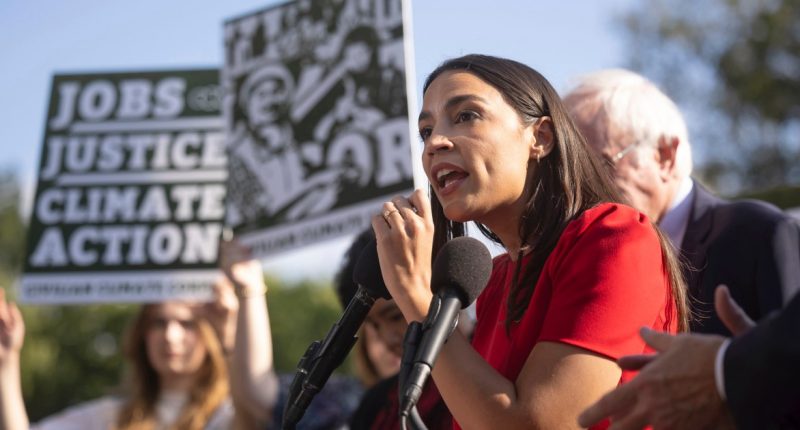
After facing setbacks in Congress, the Biden administration has unlocked funding to launch its American Climate Corps, a new federal program that looks to employ thousands of young Americans in the clean energy, conservation and climate resilience sectors.
The highly anticipated first steps for theAmerican Climate Corps, or ACC, were shared exclusively with NBC News on Tuesday, as the administration seeks to launch the first cohort by next summer.
The new corps will be led across a partnership of federal agencies: the departments of Commerce, Interior, Agriculture, Labor and Energy, as well as the Environmental Protection Agency and AmeriCorps.
The ACC almost entirely hinges on the interest of young Americans applying to join the program. The corps will host a number of “virtual listening sessions” in January to engage young people, hear their priorities and discuss on a local level how best to implement the program in different areas that are facing different climate realities. Rep. Alexandria Ocasio-Cortez, D-N.Y., and Sen. Ed Markey, D-Mass., are set to join those talks.
According to the White House, nearly 50,000 people from every state and territory, including Puerto Rico, have signed up to learn more about joining the ACC since it was first announced, and a portal to apply will be launched next spring.
The White House continued to draw similarities to President Franklin Roosevelt’s Civilian Conservation Corps, which was established in 1933 for unemployed young men to work on preserving public lands to combat low employment numbers during the Great Depression.
“A historic program like this has never been done before in the lifetime of almost every single person that’s working on this program,” said Maggie Thomas, special assistant for climate to President Joe Biden.
The administration had sought to fund the ACC through the Inflation Reduction Act, which passed Congress last year, but the funding was ultimately dropped from the final language of the IRA. The White House now hopes to use funds for climate-minded programs across multiple agencies to carry out the vision of the American Climate Corps.
Five states — California, Colorado, Maine, Michigan and Washington — have already launched climate corps programs, and the federal program will lean on them as implementing partners.
“We continue to think that Congress spending is still a good idea, that hasn’t changed, but we continue to use our creativity, to make sure that we really are using every tool available to us to tackle the climate crisis,” Thomas said. “We engage every agency and we really pull in this new diverse generation of young people to ensure that we can tackle the climate crisis in all the ways we know we need to.”
As the White House works to set up the ACC to launch its first cohort, it is tapping existing funding to carry out the program’s vision of increasing pathways for young people to launch careers in environmental justice.
The first such program the administration is targeting is the EPA’s Environmental and Climate Justice Community Change Grants program, which received $2 billion in funding from the Inflation Reduction Act last month. That funding will be used to implement and staff projects that focus on reducing air pollution and greenhouse gas emissions in underserved communities, including “an option for communities to propose their own Climate Corps program” that would put young people on those projects, the White House said.
“What we’re doing is writing into our funding opportunities the option for local communities to take advantage of this tool,” Thomas said. “And if this is the right tool for them, we want to make sure that there are ways for them to apply and to get money to do so. We, at the federal level, are working to stitch together all of these programs across the federal agency and set up the federal infrastructure to make these local programs a success.”
Rosemary Enobakhare, associate administrator for public engagement at the EPA, said the agency is targeting young people “and really making sure that they’re all a part of this work.”
“Young people are not shy about asking questions. … The EPA is really leaning in, and really telling the story around how climate is impacting communities and how young people are the future,” Enobakhare said. “And they’re going to hear this plan, and they need to be a part of the solution.”
Source: | This article originally belongs to Nbcnews.com










